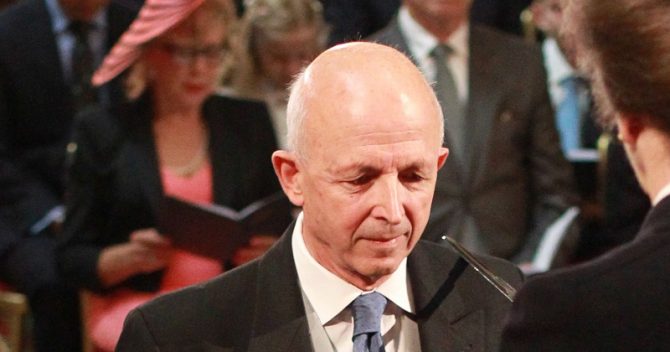By Gavin Mackintosh-
A watch dog has attacked Education Minister, Damien Hinds, for alleged inaccuracies in statistics given in relation to academic progress of Uk children. Other letters from the watchdog have also been issued to the DfE’s top boss, Jonathan Slater, and chief statistician, Neil McIvor, this morning , in a rebuke to the department.
The letters are said to amount to a “blistering” attack from the watchdog, including a decision that the DfE’s use of the controversial OECD funding statistic “was presented in such a way as to misrepresent changes in school funding”.
Sir David Norgrove, the chair of the UK Statistics Authority, began his condemnations after his organisation undertook two investigations into the presentation of stats on school funding and improvement. Norgrove has launched a stern attack against the British government for claims by the government to be the third highest spender on education in the OECD, added to the statement that there are 1.9 million more children in ‘good’ and ‘outstanding’ schools now than in 2010 has been challenged as not accurate.
In a letter to Slater, the UKSA warned: “It is important that any government department maintains a reputation as a trustworthy communicator of statistics. The UK Statistics Authority has also warned the DfE over comments by schools minister Nick Gibb about England’s place in international rankings for child literacy.
Sir David concluded by saying that he sought assurances the DfE remained committed to the principles and practices defined in the statutory Code of Practice for Statistics.
“In particular, I urge the Department to involve analysts closely in the development of its communications, to ensure that data are properly presented in a way that does not mislead,” he said.
A DfE spokeswoman said: “The most recent volume of the OECD’s Education at a Glance report said in 2015 among G7 nations, the UK Government spent the highest percentage of GDP on institutions delivering primary and secondary education.
“This is one of several statistics in the OECD report that demonstrate the UK is among the highest spenders on education at primary and secondary level, whether you look at spend as a share of GDP, spend as a share of government spending or spend per pupil.
“Other independently verified statistics show the Government is investing in schools – the IFS found that real-terms per pupil funding in 2020 will be over 50% higher than it was in 2000.
“It is true to say that the OECD has ranked the UK as the third highest for education funding – this includes tertiary and private education for every country.
LEAPFROG CLAIMS
Erroneous claims alleged to have been made include those from schools minister Nick Gibb last week that, in an international survey of reading abilities of nine-year-olds, England “leapfrogged up the rankings last year, after decades of falling standards, going from 19th out of 50 countries to 8th.” Norgrove said this was “not correct”, as “figures published last year show the increase was from 10th place in 2011 to 8th place in 2016”. He also criticized a tweet and blog by the DfE about education funding, claiming figures were “presented in such a way as to misrepresent changes in school funding”.
The damning tweet also criticizes school spending figures , which in Sir Norgrove’s “were exaggerated by using a truncated axis, and by not adjusting for per pupil spend”. In the blog, an international comparison of spend which “included a wide range of education expenditure unrelated to publicly funded schools” was used, rather than a comparison of school spending alone.
“The result was to give a more favourable picture. Yet the context would clearly lead readers to expect that the figures referred to spending on schools.”
Norgrove’s third concern is over DfE claims of a “substantial increase” in the number of children in high performing schools, as judged by Ofsted.
While this claim is accurate “as far as it goes”, the figure “does not give a full picture”.
“It should be set in the context of increasing pupil numbers, changes to the inspection framework and some inspections that are now long in the past, as an earlier letter to the Department from the Office of Statistics Regulation pointed out,” said Norgrove.
Two other letters from the watchdog have also been issued to the DfE’s top boss, Jonathan Slater, and chief statistician, Neil McIvor, in what educators consider an embarrassment for The Ministry Of Education. Under Hind’s administration, plenty of funding has been injected into schools to help boost standards.
One statistics expert said the Department of Education’s use of the controversial OECD funding statistic “was presented in such a way as to misrepresent changes in school funding”.
I regret that the department does not yet appear to have resolved issues with its use of statistics. Sir David Norgrove, the chair of the UK Statistics Authority, has intervened after his organisation began two investigations into the presentation of stats on school funding and improvement.The UK Statistics Authority has also warned the DfE over comments by schools minister Nick Gibb about England’s place in international rankings for child literacy.
Gibb said last week that, in an international survey of reading abilities of nine-year-olds, England “leapfrogged up the rankings last year, after decades of falling standard




